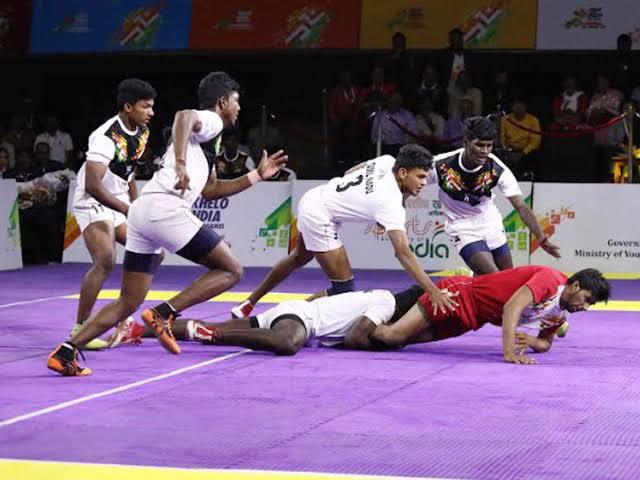Cricket News: Mumbai pollution worsens ahead of Cricket World Cup semi-final | Mumbai set to host semi-final between India and New Zealand
The race to the semi-finals of the 2023 World Cup has created many talking points and fantastic memories. Afghanistan made a strong push, thwarted by one of the greatest – if not the greatest – ODI innings of all-time by Glenn Maxwell. Pakistan were sitting, waiting, and wishing for a New Zealand defeat against Sri Lanka, but it wasn’t to be as the Black Caps arrested a four-game losing streak.
Unfortunately, however, air pollution has marred the backend of the tournament. The pollution in Delhi, which saw the air quality index (AQI) rise above 400, led to Bangladesh and Sri Lanka cancelling training sessions ahead of their match. The game eventually went ahead in hazy conditions, with controversy, as well as poor air quality, engulfing the match.

Mumbai pollution concerns: 4 in 5 families complain of side-effects
There are no further matches in Delhi in this World Cup, but the air quality concerns don’t end there. Pollution has engulfed Mumbai, the host city of one of the semi-finals. A survey of residents in Mumbai has revealed that 4-in-5 families have suffered from a sore throat or cough due to the city’s deteriorating air quality. In addition, 44% of those surveyed encountered burning eyes.
The recent match between Afghanistan and Australia at Wankhede, which will be remembered for Glenn Maxwell’s brilliance, the air quality index was 14 times worse than the safe limit, with fireworks banned after the match.
“BCCI [Board of Control for Cricket in India] is sensitive to environmental concerns. I took up the matter formally with the ICC and there won’t be any fireworks display in Mumbai, which can add to the pollution level.” BCCI secretary Jay Shah said in a statement earlier this month.
“The board is committed to combating environmental issues and will always place the interest of our fans and stakeholders at the forefront.”
Earlier this month, India captain Rohit Sharma expressed concerns about the air pollution in Mumbai and Delhi. He said it’s important future generations live without fear.
“Looking at our future generations, your kids, my kid. Obviously it is important that they get to live without any fear. Every time I get to speak outside of cricket, or not discussing cricket, I always talk about this. We have to look after our future generations,” he said.
Previously, England batsman Joe Root said he has never encountered conditions that he did in Mumbai. He also rose the air quality issue following England’s defeat to South Africa.
“I’ve not played in anything like that before,” said Root. “I’ve obviously played in hotter conditions, and probably more humid conditions, but it just felt like you couldn’t get your breath. It was like you were eating the air.”
“It felt like quite a hazy day,” he continued. “You could definitely see that from one side of the ground, looking back towards the sun, it was a lot harder visually than it was on the other side of the ground. Whether it was air quality or what, it was definitely an experience I’ve not had before.”
Also, ESPNcricinfo journalist Matt Roller documented the situation in Mumbai and Delhi. “I arrived in Bengaluru on Sunday and feel like I can breathe again”, he wrote on October 25. “I had spent five days in Delhi, then six in Mumbai, and the combination of lower temperatures and better air quality over the last 48 hours has been so refreshing: Bengaluru is cool enough to walk around without breaking a sweat within five minutes, and I have been grateful for some fresher air.”
Officials will continue to monitor conditions ahead of the semi-final on 15 November, as they have done for matches in Delhi and Mumbai in this tournament.















